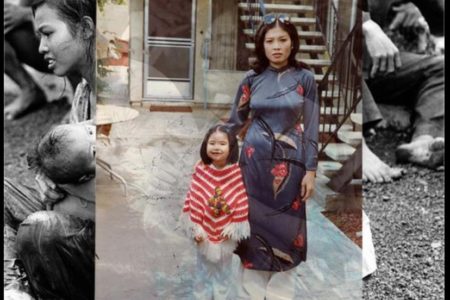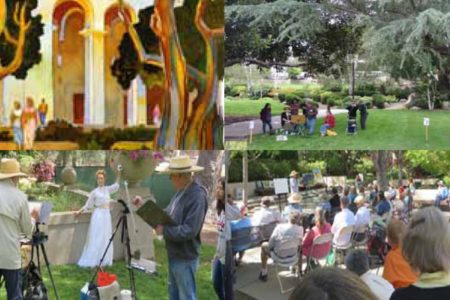
Pasadena Heritage continues this year’s fall education event, Preservation Pasadena: Craftsman to Modern, with a weekend full of interesting online events.
Preservation Pasadena is a reimagination of the annual Pasadena Heritage Craftsman Weekend, with a broader frame and a new name. For 10 days, starting Friday, November 6, the group will hold a series of virtual events including tours, lectures, panel discussions, and conversations with artists and collectors. You can immerse yourself in great architecture as you experience over 15 programs up to November 15.
The weekend programming begins Saturday with a panel discussion on “How Sunset Magazine Shaped the West,” 10 to 11:30 a.m.
Sunset Magazine came into being in 1898 when Southern Pacific Railroad started publishing it to encourage settlers elsewhere to come to the region. The magazine soon became the design bible of the West. Somewhere in its history, a group of staffers and a Stanford archivist moved the magazine’s archives to Stanford campus, where they still reside to this day.
The panel will feature Peter Fish, travel writer and former editor at Sunset; Ben Stone, Stanford Libraries curator for American and British history; and Elizabeth Logan, Associate Director of The Huntington-USC Institute on California and the West.
Also on Saturday, Pasadena Heritage researcher and docent David Nufer will explore “The Asian Roots of Pasadena’s Arts and Crafts Architecture” with an illustrated lecture discussing the history, culture and architectural contributions of one the city’s largest minority communities, from 12 to 1:30 p.m. The influence of Asian architecture on the houses of Greene and Greene, vernacular Craftsman bungalows, and Mid-Century Modern houses of Buff and Hensman highlight why Pasadena has perhaps the best examples of Arts and Crafts architecture in the Western United States.
From 5 to 6:30 p.m., Ted Bosley, Director/CEO of The Gamble House, will host “Greene and Greene Meet Post-War Modernism,” and tell the story of the Greenes’ re-discovery after World War II, when homes designed by the Greenes were being sold to the public by an influential magazine editor, a bombastic writer, and an enterprising photographer, leading to a professional recognition so richly deserved.
Sunday, November 8, will feature David Nufer in “Hispanic Influence on Pasadena and California Architecture,” 12 to 1:30 p.m.. He examines how the Spanish/Hispanic/Latino architectural design vocabulary evolved over a thousand years, across four continents, and how it has flourished here in Pasadena.
Nufer will explore venerable examples, such as the San Gabriel Mission, Castle Green, Caltech campus, Civic Center, and 1920s Spanish Colonial Revival houses designed by George Washington Smith, Wallace Neff, and many others. Also studied here are more recent Hispanic-influenced projects, such as the Del Mar Metro Gold Line Station.
From 5 to 6:30 p.m., author and TV producer Stephen Gee will explore “The Legacy of Architect John Parkinson.” Parkinson’s buildings have provided memorable backdrops for Hollywood blockbusters, played center stage for two Olympic Games, and welcomed presidents and royalty.
Among the more than four hundred Parkinson-designed buildings in Los Angeles are City Hall, the most iconic building in California, famously “destroyed” in the 1953 film War of the Worlds; Union Station, the last great train station built in the U.S.; the Memorial Coliseum, site of both the 1932 and 1984 Olympic Games; Bullock’s Wilshire, a 1929 Art Deco masterpiece, as well as many structures on the USC campus.
Stephen Gee authored “Iconic Vision: John Parkinson, Architect of Los Angeles,” “Los Angeles City Hall: An American Icon” and “Los Angeles Central Library: A History of Its Art and Architecture,” co-authored with Arnold Schwartzman.
Tickets for Preservation Pasadena events are $12 for Pasadena Heritage members and $15 for non-members. You can purchase a package for all the events for $138 for members and $175 for non-members.
For more information and to buy tickets, visit www.pasadenaheritage.org/





